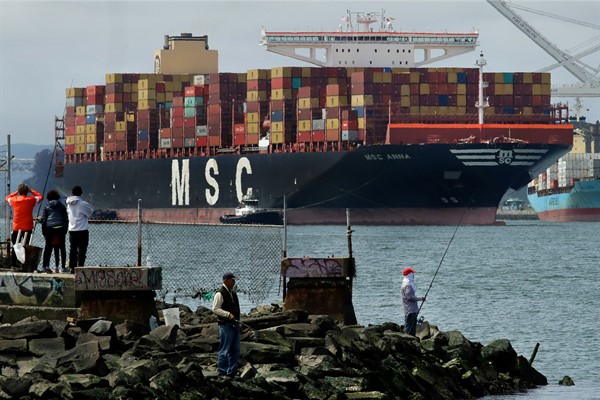Since the onset of the coronavirus pandemic, the Trump administration’s trade policy has been shifting from an inclination to punish to a yearning for retreat. After imposing tariffs on trading partners that cost U.S. consumers $12 billion last year, the White House has been looking for ways to repatriate industrial activity from China and launch a new state-led industrial policy. But cutting the economic cord with China will not magically halt its geopolitical rise, and imitating its state-led approach to the economy would make America both less secure and less prosperous.
Instead, the next U.S. administration should launch a “Safe Trade” agenda that creates growth, resilience and security without abandoning U.S. engagement in the global economy, which would only give China free rein to reshape the international trade regime to its preferred set of rules. A Safe Trade agenda would complement government initiatives to secure against supply disruptions—like the stockpiling of goods essential to public health—by building a diverse set of high-standard trade and investment relationships to help ensure continued prosperity when the next shock begins, or if a certain sector is unexpectedly affected. And it would seek to strengthen the global trading system so that it creates greater security for the U.S. and like-minded countries.
But the United States is no longer powerful enough to make international trade safer all by itself. To do so, it will need to draw upon its relationships with its partners, particularly the European Union. Although it has been misunderstood and devalued by President Donald Trump and his administration, the EU remains America’s most economically important and most natural trade and political partner.

